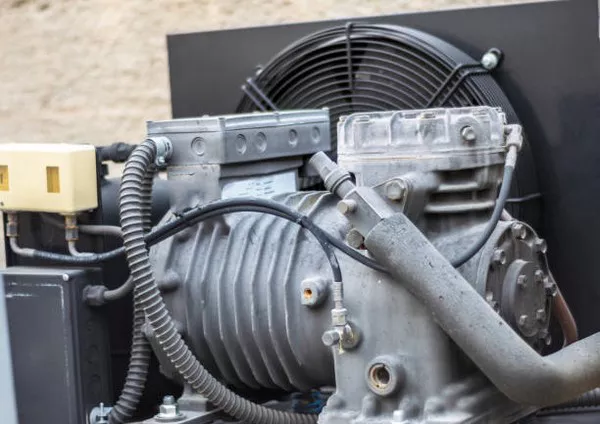In the realm of electrical power generation, the terms “DC” and “AC” often surface, each representing a distinct method of producing electricity. Direct Current (DC) and Alternating Current (AC) generators serve as the cornerstones of modern electrical systems, powering a multitude of devices and appliances. However, their underlying principles, applications, and characteristics diverge significantly. In this article, we delve into the differences between DC and AC generators, shedding light on their functionalities, advantages, and roles within our electrified world.
Basics of DC Generators:
DC generators, also known as dynamos, are devices designed to produce direct current. Direct current flows continuously in a single direction, making it suitable for devices that require steady and consistent power, such as batteries and electronic circuits. The operation of a DC generator is based on the fundamental principle of electromagnetic induction, as first formulated by Michael Faraday in the 19th century.
The core mechanism of a DC generator involves the rotation of a coil within a magnetic field. This coil, often referred to as the armature, is connected to a set of brushes that make physical contact with the coil. As the coil spins, the interaction with the magnetic field induces an electric current to flow in one direction within the armature. This direct current is then collected by the brushes and can be utilized to power external circuits or stored in batteries.
Advantages of DC Generators:
Steady Voltage Output: The primary advantage of DC generators lies in their ability to provide a consistent voltage output. This feature is particularly valuable for devices that necessitate a stable power supply, such as electronic gadgets and sensors.
Simple Design: DC generators often boast a simpler construction compared to their AC counterparts. The absence of components required for alternating current generation contributes to their straightforward design and maintenance.
Battery Charging: DC generators are well-suited for charging batteries, as the generated current aligns with the characteristics of most battery chemistries.
Applications of DC Generators:
DC generators find their applications in various domains:
Battery Charging: DC generators are commonly employed in vehicles and backup power systems to charge batteries.
Telecommunications: They power remote communication stations and equipment due to their reliability and consistent voltage output.
Electronics: DC generators are pivotal in electronic devices, supplying stable power to microcontrollers, sensors, and gadgets.
Understanding AC Generators:
Alternating Current (AC) generators, often referred to as alternators, operate on a contrasting principle from DC generators. AC generators produce electrical power characterized by an alternating flow of current, with the direction reversing at regular intervals. This alternating current is notably adopted for power distribution across large distances, facilitated by transformers.
The functioning of an AC generator hinges on Faraday’s law of electromagnetic induction. A coil within the generator’s armature rotates within a magnetic field, inducing a voltage across the coil. However, unlike DC generators, AC generators utilize slip rings to collect the induced current, enabling the current to alternate as the coil spins. This alternating current can be harnessed for various applications, from powering households to driving industrial machinery.
Advantages of AC Generators:
Efficient Power Transmission: AC generators are ideal for long-distance power transmission due to their compatibility with transformers. Transforming AC voltage facilitates efficient transmission and reduces power loss over extended distances.
Variable Voltage Control: AC generators enable the control of voltage output by adjusting factors such as the number of coil windings or the magnetic field strength.
Multiphase Power Generation: AC generators can produce multiphase AC power, which is advantageous for operating powerful motors and heavy machinery.
Applications of AC Generators:
AC generators serve as the backbone of modern electrical systems:
Power Grids: AC generators are the primary sources of electricity for power grids, providing alternating current that can be distributed to homes, industries, and commercial establishments.
Industrial Machinery: AC generators power industrial motors, pumps, and heavy machinery due to their capacity to provide high power output.
Household Appliances: Most household appliances operate on AC power, as it is compatible with the standard power outlets found in homes.
In conclusion
while both DC and AC generators play vital roles in our electrified world, their fundamental differences shape their applications and functionalities. DC generators provide steady and consistent power output, making them suitable for devices that demand stability. AC generators, on the other hand, are renowned for their efficiency in power distribution over long distances and their ability to cater to diverse applications. As technology evolves and energy demands increase, both types of generators will continue to contribute to our electrified society, each fulfilling specific needs in a dynamic and interconnected electrical landscape.

